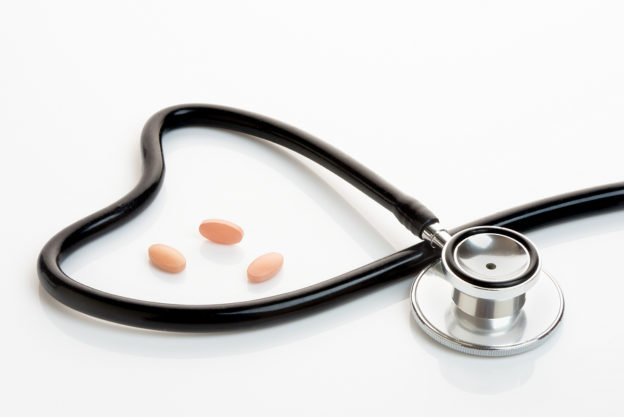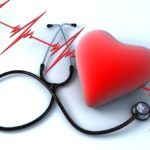By David Blyweiss, M.D., Advanced Natural Wellness
March 10, 2017
- Big Pharma is perpetuating a fraud
- The ugly side of statins
- LDL isn’t a problem, but this is…
Big Pharma is constantly looking for new ways to rope you into taking statin drugs. And they actively discourage any reporting of negative side effects.
The only message they want you to hear is that these drugs will protect you from a heart attack and might save your life. There have even been reports of added benefits to taking statins.
For example, last month you may have seen headlines stating taking a statin might help ward off Alzheimer’s disease. In recent years there have also been some reports that these drugs can reduce the incidence of certain types of cancer.
Don’t fall for it.
Statins are one of the most dangerous drugs prescribed today. Taking them will not prevent disease or death. Instead, they’ll likely leave you riddled with more health problems than you would ever have otherwise.
Here are a few of the uglier reports you may not have read about…
Open your arteries, improve blood flow for a new health miracle...
Did you know your circulatory system has over 60,000 miles of arteries, veins and other blood vessels, if stretched end to end?
But as you age, your blood vessels undergo changes, which may cause them to stiffen, thicken and get clogged.
GOOD NEWS! Doctors have now identified a “Miracle Molecule” inside your arteries that helps OPEN your arteries and IMPROVE blood flow.
It’s what Dr. Valentin Fuster calls it, "One of the most important discoveries in the history of cardiovascular medicine."To you, that means...
- Healthy blood pressure
- Sharper mind and memory
- Skyrocketing energy and muscular strength
- Increased pleasure and passion in the bedroom
- Improved circulation to every cell and organ in your body
Go here to discover a new natural way to significantly boost the levels of this miracle molecule in YOUR body NOW!
The Ugly Side of Statins
Statins are a $20 billion a year industry. So it behooves drug makers to suppress any negative side effects of statins. However, your life depends upon knowing what you can expect when you take one of these cholesterol-lowering medications.
Confusion and memory loss is a big concern when it comes to statin drugs. The risk of developing these problems is great enough that even the FDA can’t ignore it. In 2012 the agency required drug makers to add a label warning stating that “Statins may increase the risk of brain-related effects like memory loss and confusion.”
Diabetes is a health condition that is already rampant in the U.S. And statins aren’t doing anything to curb the epidemic. In fact, they’re adding to it. They tend to increase blood sugar levels – leading to a state of hyperglycemia – in both diabetic and non-diabetic patients alike.
Overall, statins increase your risk of diabetes by about 9%. That may not sound like a lot, but remember this: Diabetics are two to four times more likely to develop cardiovascular disease.
Hardening of the arteries occurs when calcium deposits build up on the walls of your arteries. And statins are known to increase the accumulation of these deposits.
When people with healthy arteries took statin drugs, they had 54% higher odds of developing this type of plaque build up. And in diabetics, statins greatly accelerated the calcification process. This was despite the fact that the drug lowered their LDL to nearly optimal levels.
Statins also increase your chances of developing cataracts, peripheral neuropathy, certain types of cancer and, in men, erectile dysfunction.
And let’s not forget about the deadly form of muscle damage that statins are well-known for. It’s called rhabdomyolysis. This disease causes severe muscle pain. And it can directly injure the muscular tissue in your heart!
The World's Quickest Solution for Ending Prostate and Urinary Misery
This has recently been revealed to be one of the only real breakthroughs in prostate health.
The seeds of a strange fruit (sometimes called "Chinese Apples") hold powerful phytonutrients that are a revolution in prostate health.
In fact, UCLA and Veterans Administration research have now proved this to be true.
Not only that, but it may be the worlds quickest solution for ending prostate misery.
Simply stated, these phytonutrients represent a huge step beyond beta sitosterol, saw palmetto, and other phytosterols alone.
Simply click HERE if you want to have fast prostate relief...restful, uninterrupted sleep...no more constant "urges to go"...enhanced virility...and optimal prostate support for life.
Statins Treat the Wrong Problem, and do Nothing to Fix the Real Issue
Now, I’ll be honest with you. LDL cholesterol isn’t a problem. It’s an industry.
The real problem with arterial health comes with the size of your LDL particles.
It all starts with oxidative stress, inflammation and immune dysfunction that damage your arteries. Once your arteries are compromised, they become especially vulnerable to small, dense LDL particles.
You see, some LDL particles are light and fluffy. They harmlessly bounce around in your blood vessels. Others are small, dense and hard. These are the ones that slip into the lining of your blood vessels where they cause heart disease and plaque build up.
Now, it’s important to note that statin drugs do nothing to reduce the amount of small, dangerous LDL particles in your bloodstream. In fact, statins can increase the number of these killer particles.
With this in mind, I suggest you ask your doctor for an advanced form of lipoprotein testing, called Vertical Auto Profile (VAP). Among other things, it will identify LDL particle size patterns.
In the meantime, there are a few things you can do to boost the volume of your LDL particles and improve the health or your arteries. In addition to not smoking (obviously) eating a healthy organically as possible Mediterranean style diet and getting regular exercise, I recommend the following supplements.
Omega-3 fatty acids, particularly eicosapentaenoic acid, naturally reduces small, dense LDL particles. Look for a formula that contains 1200 mg of EPA and 800 mg of DHA. Additionally, it should contain oil from fresh, wild-caught, deep-sea fish that has been molecularly distilled and tested for purity. Take between 2,000 and 4,000 mg daily.
Supplement with niacin. Start on a low dose, about 100 mg daily. Then slowly add 100 mg each week until you’re up to 1,000 mg each day. Take it in divided doses over the course of the day.
This will have a specific effect on the smaller, more dangerous LDL particles. If the flush that’s so common with niacin bothers you, take an 81 mg coated Bayer aspirin just beforehand.
Look for a plant-based NO enhancer that has beetroot juice as its main ingredient and take it daily. Nitric oxide is a natural compound in your body that helps your arteries remain relaxed and flexible. When you have plenty of it, it helps boost blood flow and lower blood pressure.
SOURCES:
FDA Drug Safety Communication: Important safety label changes to cholesterol-lowering statin drugs. FDA. Feb 2012.
Sukhija R, et al. Effect of statins on fasting plasma glucose in diabetic and nondiabetic patients. J Investig Med. 2009 Mar;57(3):495-9.
Nakazato R, et al. Statins use and coronary artery plaque composition: results from the International Multicenter CONFIRM Registry. Atherosclerosis. 2012 Nov;225(1):148-53.
Saremi A, et al. Progression of vascular calcification is increased with statin use in the Veterans Affairs Diabetes Trial (VADT). Diabetes Care. 2012 Nov;35(11):2390-2.
Sultan S, et al. The Ugly Side of Statins. Systemic Appraisal of the Contemporary Un-Known Unknowns. Open Journal of Endocrine and Metabolic Diseases. 2013, 3, 179-185
Choi CU, et al. Statins Do Not Decrease Small, Dense Low-Density Lipoprotein. Tex Heart Inst J. 2010; 37(4): 421–428.
Morgan JM, et al. Effects of extended-release niacin on lipoprotein subclass distribution. Am J Cardiol. 2003 Jun 15;91(12):1432-6.
Kapil V, et al. Dietary nitrate provides sustained blood pressure lowering in hypertensive patients: a randomized, phase 2, double-blind, placebo-controlled study. Hypertension. 2015 Feb;65(2):320-7







